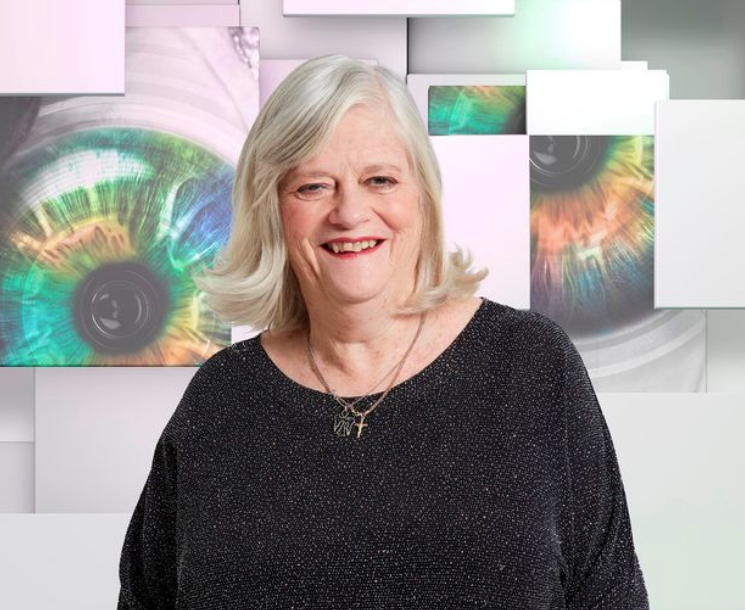As Anne Widdecombe enters the Big Brother house – how would your life look under constant observation?
Sometimes you just have to stand back and admire unexpected longevity. Back in the late 1990s, it's unlikely that most people would have predicted that Big Brother – the reality TV show where people are locked together in a house full of cameras – would still be featuring in the water-cooler conversations of 2018. Dare I say it might have felt even less likely that Anne Widdecombe, the former Conservative MP, would still be in the public eye at 70, some eight years after leaving parliament? Yet those two unexpected realities have converged this week as the opinionated former politician has taken the brave step of becoming a contestant on Celebrity Big Brother.

Reactions to her unveiling were mixed and polarised. Some saw her presence among an all-female starting cast (to celebrate 100 years since white women were given the vote in the UK) as an unlikely triumph for Girl Power. Others noted her rather controversial stance on certain moral issues during and after her time in the House of Commons, which included suggesting that female prisoners should remain chained up while giving birth. Her strong Catholic faith has also placed her on the opposite side to most people in certain debates. She was a divisive figure even before she placed herself under the scrutiny of this populist social experiment.
Now however, there will be nowhere for Widdecombe and her fellow housemates to hide any idiosyncrasies, unsavoury opinions or gaps of integrity. The usual form for the show is that after a few days the contestants begin to forget the well-disguised cameras in every room, and allow any mask they've intended to wear, to slip. If Widdecombe does hold views which are best held in secret (or not at all), it's likely that they'll begin to seep out in unguarded conversation. If she has managed to hide a foul temper, a jealous streak or even so much as a flatulence problem, it will surely soon be exposed for the whole world to see (or hear).
Which begs the question: would any of us do any better? If you were surrounded by cameras, 24 hours a day for weeks on end, what might the world say of you afterwards? Would they be impressed by your integrity – the fact that your actions married up for all that time with the way you presented yourself and the values you claimed to hold? Or would they be ridiculing your hypocrisy because of the vast mismatch between the two?
As Christians, this matters not because we might all one day be given an opportunity to enter the Big Brother house, but because integrity is something that the Bible asks us to take seriously. Perhaps the most stunning example of it is found in 1 Samuel 12, where the great prophet and leader of Israel makes a sort of 'leaving speech' as he ushers in the age of kings. In his address, he invites the entire assembly of the people to name a single lapse of integrity that they've witnessed during his decades as their leader – and they can't find any. Despite the 24 hour, seven-day-a-week observation of the people over all these years, they can find no example of corruption or hypocrisy. After Samuel entered the sort of 'Big Brother house' of leading Israel, he came out smelling of roses.
Jesus seems to take this issue very seriously too. His constant battles with the Pharisees are usually fuelled by their hypocrisy; the fact that they're not entirely who they say they are. He frequently chastens them for finding fault in others and ignoring their own flaws (Matthew 7:3), or for presenting themselves gleaming on the outside while they're spiritually dead within (Matthew 23:27). It seems that for Jesus, what we do is more important than what we say; our actions reveal our true selves far better than our well-crafted words. All of which is a challenge for everyday life: to keep on living up to the standard we claim to set for ourselves, as if everyone was watching; to live like there are cameras hidden everywhere around us.
Way back in 2003, when Big Brother was at the peak of its powers as a cultural phenomenon, Christian fish trader Cameron Stout not only won the competition by a wide margin, but managed to emerge from the house with his integrity intact. In fact, while the highlights packages rarely showed him praying and reading his Bible (the one luxury item he chose to take into the house), Stout actually managed to repair the cultural reputation of evangelical Christians with his gentle, kind and generally humble manner.
So for Anne Widdecombe, there is hope, and at least a bit of a precedent. For the rest of us, there's just Jesus gentle but firm command to 'simply let your yes be yes, and your no, no' (Matthew 5:37). Whether we're acting in secret or the fullest possible public view, our lives as Christians should always stand up to scrutiny.
Martin Saunders is a Contributing Editor for Christian Today and the Deputy CEO of Youthscape. Follow him on Twitter @martinsaunders.











